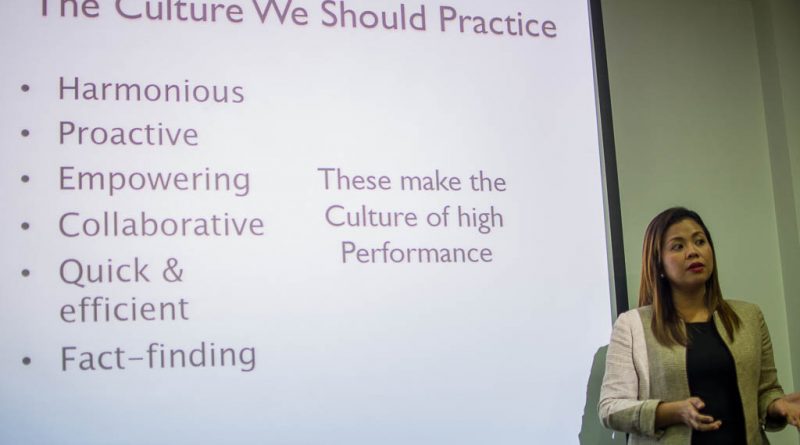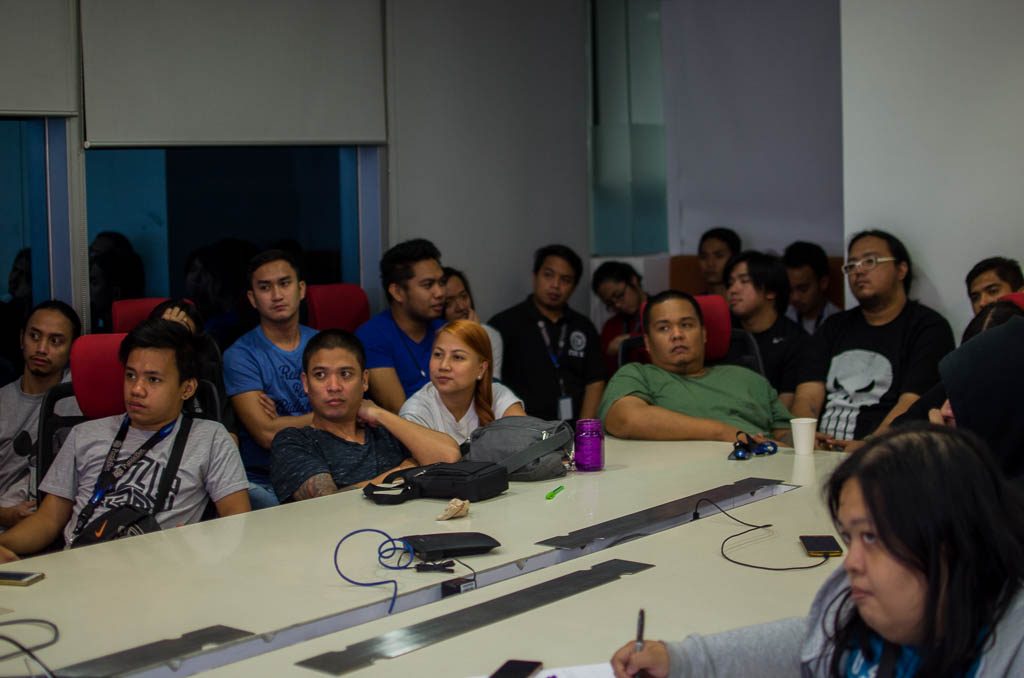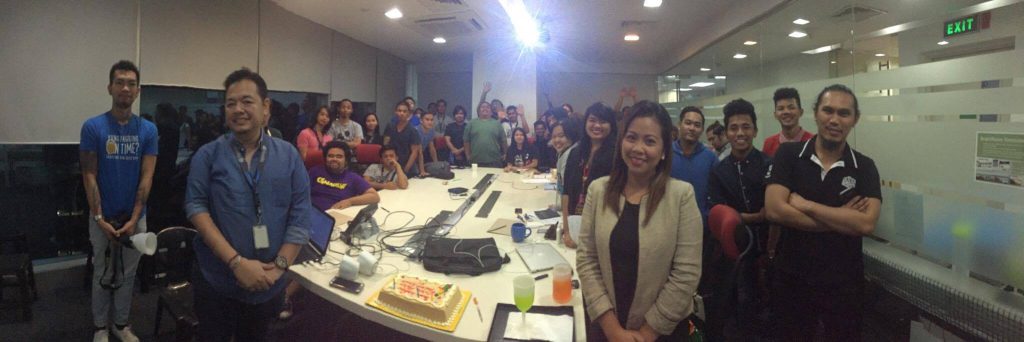PuzzleBox BPO Inc. Reviews: 6 Best Practices of a Virtual Frontliner
Words by: Nene Que If you think highly of your personal output and you consider that your individual skill alone will contribute to the success of your company, then you are wrong. That was what Joyce Gonzales-David emphasized gleefully (considering the long travel from Subic, Pampanga) on our 11th Continuous Learning Program as she talked about the Best Work Culture and Attitude.  Joyce Gonzales-David started out as a waitress and rose to the top, becoming who she is today, a consultant to various companies while managing her own local travel and lifestyle magazine. Her inspiring work history molded her, and with her wisdom that only first-hand experience could provide, she shared with PuzzleBox the things that made her tick – something which we could use in our career as well.
Joyce Gonzales-David started out as a waitress and rose to the top, becoming who she is today, a consultant to various companies while managing her own local travel and lifestyle magazine. Her inspiring work history molded her, and with her wisdom that only first-hand experience could provide, she shared with PuzzleBox the things that made her tick – something which we could use in our career as well. 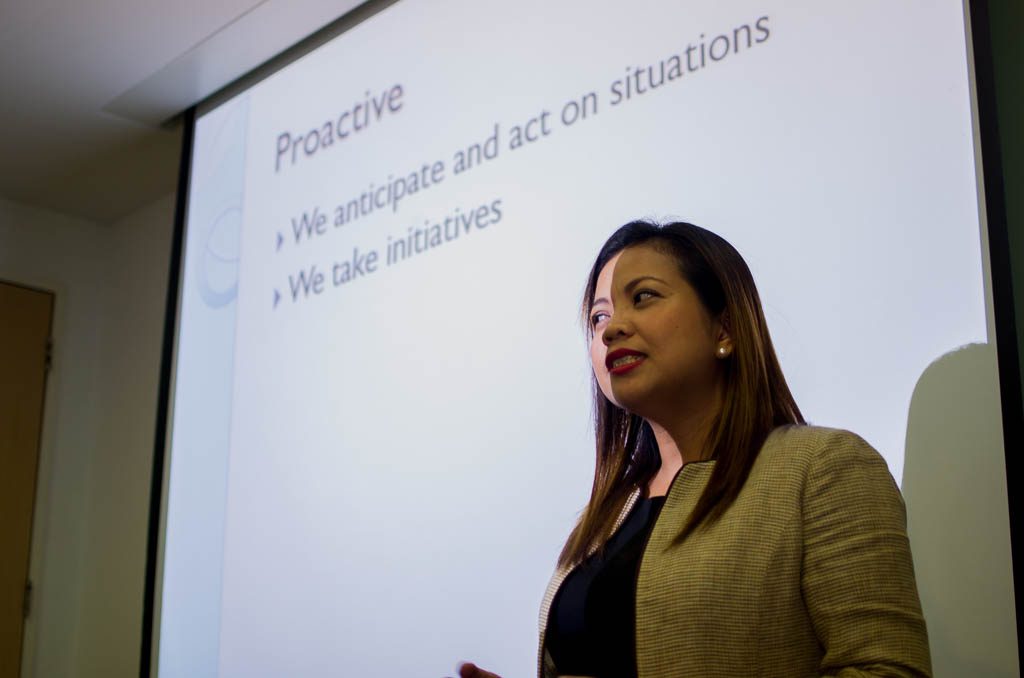
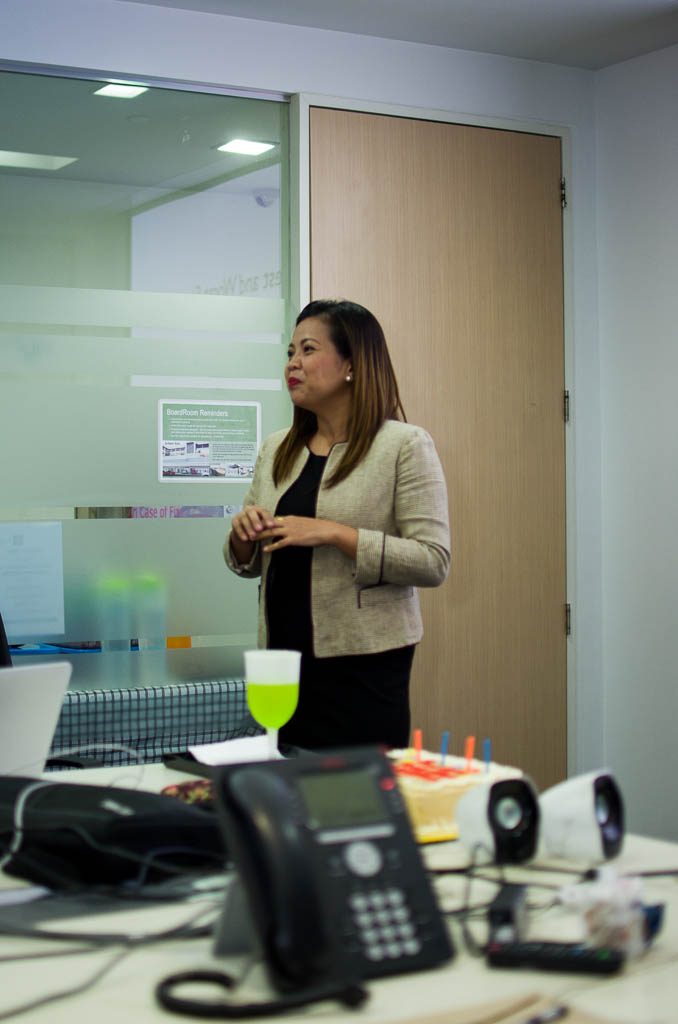 As much as an individual contribution is valued, a healthy working ecosystem is of higher significance. The cliché “There’s no I in Team” echoed and vibrated with truth in every fiber of it. The success of a company depends on how strong the core is – a harmonious and healthy work culture and environment. In a healthy workplace, values, leadership styles, everyone’s strengths and weaknesses, and even individual stories are the cogs of the complex machinery. And the service inspired by these intangible elements is where the sense of ownership develops, serving as the oil for this machinery to function smoothly.
As much as an individual contribution is valued, a healthy working ecosystem is of higher significance. The cliché “There’s no I in Team” echoed and vibrated with truth in every fiber of it. The success of a company depends on how strong the core is – a harmonious and healthy work culture and environment. In a healthy workplace, values, leadership styles, everyone’s strengths and weaknesses, and even individual stories are the cogs of the complex machinery. And the service inspired by these intangible elements is where the sense of ownership develops, serving as the oil for this machinery to function smoothly. 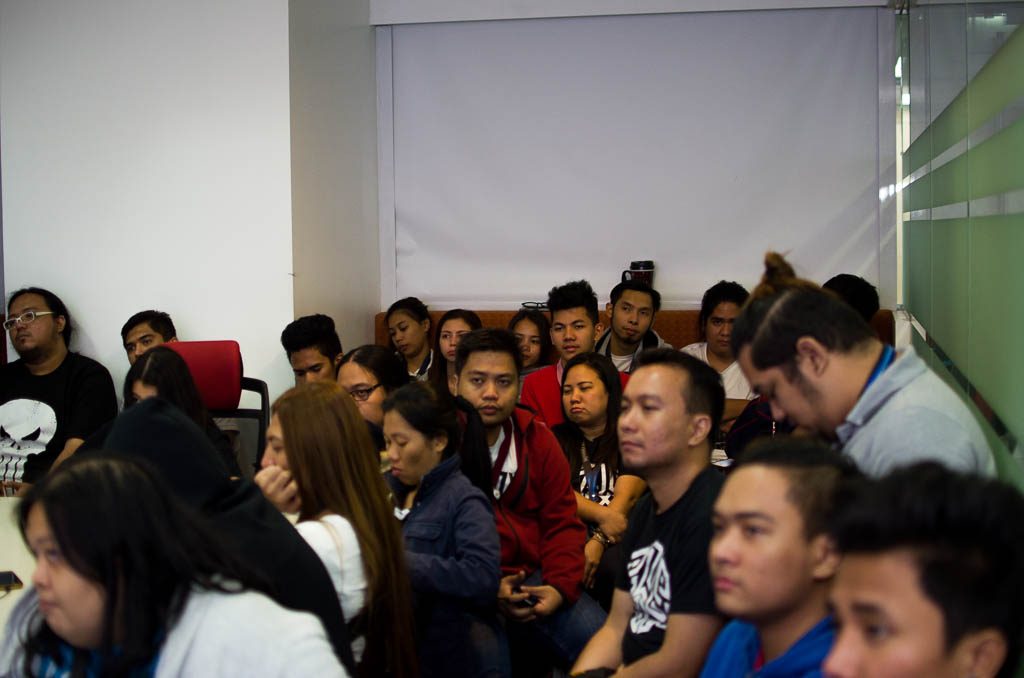
THE 6 TYPES OF WORK CULTURE Choosing to be positive benefits everyone. “Being positive is contagious” and this will radiate to your outcome and how you view your workplace. 
- Factional vs Harmonious
When Ms. Joyce explained this, we can’t help but think of Voltes V (Let’s Volt-in sequence). Despite being a five-man team, they are stronger when they are fused as one! It teaches that cliques and workplace politics should be transformed into a harmonious workplace where listening, empathy, and healthy competition are practiced.
- Laidback vs Proactive
If you are relaxed, easy-going, untroubled and carry have a “couldn’t care less” vibes about you, then something is wrong. This laidback culture may be comfortable for you as an individual but not as a team member. This can be positively flipped into being proactive. This means that you and your teammates anticipate, have initiative and foresee opportunities. This helps everyone to see, think and act ahead.
- Disapproving vs Empowering
Imagine a workplace that doesn’t appreciate new ideas, a workplace where insecurities take over. It will be a stagnant place where things are killed way before they are conceived. If the workplace loves making people grow, it should practice boosting employees’ confidence and knows how to delegate and trust critical roles. People will have a sense of belongingness this way.
- Individualist vs Collaborative
The me, myself and I syndrome displaces your concern for others, not giving a chance for a collaborative culture. Instead of thinking of your own benefit alone, working with others while encouraging joint effort, being happy for others, coordinating and supporting make things efficient.
- Slow and Careful vs Quick & Efficient
You may wonder why being slow and careful is negative. It’s because slow pacing is disrespectful to other people’s time and being overly cautious loses the sense of urgency. Overthinking results to analysis paralysis, driving away opportunities instead of delivering work output. Being quick and efficient however makes the best performance where results are achieved, making sure that it is both fast and accurate and more importantly it shows that you care about other people’s timeline.
- Gossiping vs Fact Finding
As much as gossiping is undeniably, a pastime and entertainment in any office, we all know how it can spread toxicity. This is stealing time from the company, is counter-productive, and is a sign of insecurity. Most of the people who gossip are notably the least performing. Instead of dwelling on this kind of unhealthy hobby, one can practice valuing relevance and accuracy. One can ask questions to identify key information and should hear all sides which can contribute to the resolution and transparency of the issue at hand.
